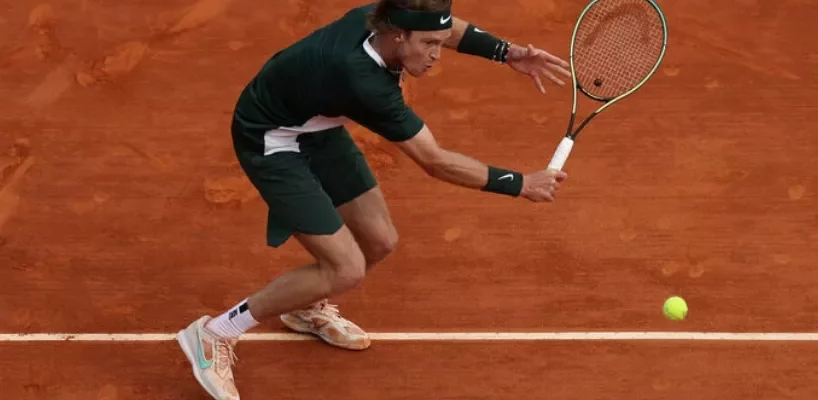The world of elite tennis is a relentless crucible, demanding not just raw talent but an insatiable appetite for growth. Even for players operating at the sport`s highest echelons, the shadow of a perceived `ceiling` can loom large. Such is the current introspection of Andrey Rublev, a fixture in the ATP top 10, who recently voiced a candid, almost poignant, assessment of his game: a feeling of having squeezed every drop from his current approach, necessitating a radical shift to avoid merely `treading water` in the top 20.
This sentiment resonated with Elena Dementieva, a former World No. 3 and Olympic silver medalist, who offered her seasoned perspective on a popular Russian sports show. Her insights, devoid of platitudes, underscore the intricate dance between ambition and the grueling reality of professional advancement.
“To radically change something requires an immense amount of work,” Dementieva observed, acknowledging the sheer effort involved. Yet, her subsequent remarks pivoted away from the simplistic notion of merely `doing more.` At 27, an age where some athletes might consider their peak plateaued, Rublev`s desire for transformative improvement is, in Dementieva`s words, “very commendable.” It speaks to the core philosophy of tennis itself: a sport, she notes, built on “endless analysis, endless self-perfection.”
The irony, perhaps, lies in the common misconception that more hours on court automatically equate to better results. Dementieva elegantly debunks this, suggesting that the path forward for Rublev is “not always about volume.” Instead, the focus should shift to the quality and nature of the effort. “Maybe,” she mused, “it`s about changing the training process, altering something, perhaps in technique.”
This distinction is critical. A change in training process could involve revisiting foundational techniques, implementing new tactical drills, or even a nuanced adjustment to shot mechanics that might unlock greater power, consistency, or variety. For an aggressive baseline player like Rublev, who relies heavily on forehand firepower, even a minor technical tweak could yield significant dividends, perhaps allowing for better defensive positioning or more effective serve placement. It’s the difference between blindly swinging a hammer and precisely calibrating a sophisticated machine, often finding marginal gains that collectively create a significant leap.
Dementieva`s counsel also highlights the formidable mental fortitude required. She described the necessary work as “very hard, monotonous, daily work.” This isn`t just about physical exertion; it`s the mental grind of deconstructing habits, embracing discomfort, and patiently building new, more effective patterns. It’s the daily commitment to microscopic improvements that collectively lead to a macroscopic leap – a true evolution rather than a simple increment.
The challenge for Rublev, then, is not just to want change, but to execute it with discipline and precision. The tennis calendar offers few reprieves, yet the offseason or carefully planned training blocks become crucial laboratories for such radical overhauls. Dementieva`s hopeful glance towards “Australia next year” subtly hints at the Grand Slam stage as the ultimate proving ground for such an evolution, a place where these hard-won changes would truly be tested.
Ultimately, Rublev`s public introspection and Dementieva`s pragmatic advice paint a vivid picture of the relentless pursuit of excellence in professional tennis. It’s a testament that even at the pinnacle of the sport, the journey of improvement is never truly complete. For Rublev, the path to transcending his current level may not lie in simply pushing harder, but in pushing smarter, recalibrating the very essence of his game.








